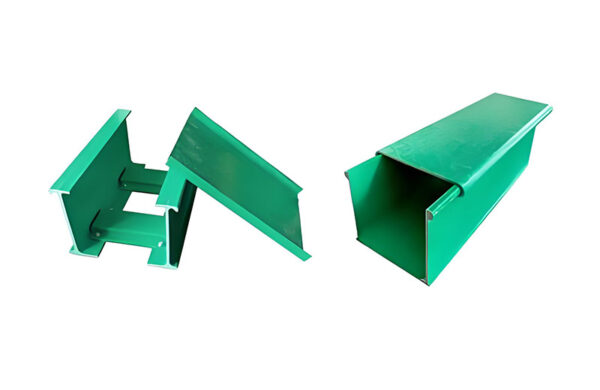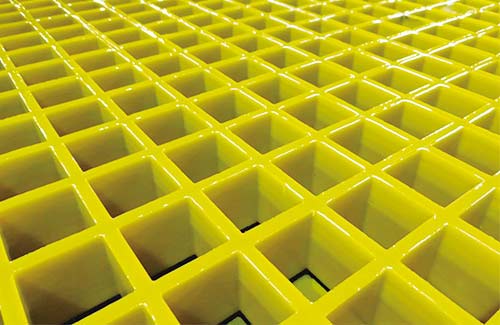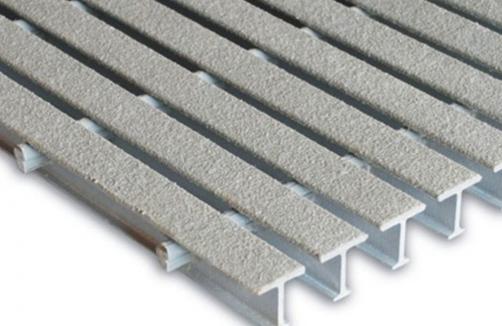FRP Grating for Battery Room Flooring: The Ultimate Solution for Corrosive Environments
Battery rooms are critical components of many industrial and commercial facilities, housing sensitive equipment that requires a stable and safe flooring solution. Given the harsh chemical environments, traditional flooring materials often fail to meet the demands of such spaces. This is where Fiber Reinforced Polymer (FRP) grating emerges as the ultimate solution for acid-resistant flooring in battery rooms.
Why Do Battery Rooms Require Acid-Resistant Flooring?

Battery rooms are prone to corrosive substances due to the chemical reactions involved in battery operations. Acid spills, electrolyte leaks, and other corrosive agents can damage conventional flooring materials like concrete, steel, or wood. This not only compromises safety but also leads to costly repairs and downtime.
Common Challenges in Battery Room Flooring
- Corrosion and Rusting: Traditional materials like steel can rust when exposed to acidic substances, leading to structural weaknesses.
- Resistência química: Many flooring options do not withstand prolonged exposure to acids, resulting in degradation and frequent replacements.
- Resistência ao deslizamento: Spills can create hazardous slip hazards if the flooring is not designed to maintain traction.
- Isolamento elétrico: In battery rooms, flooring must also be electrically insulating to prevent short circuits and ensure safety.
FRP Grating: The Ideal Solution
FRP grating is a composite material made from fiberglass and polymer resin, offering exceptional strength, corrosion resistance, and durability. It is the preferred choice for battery room flooring for several reasons.
Principais benefícios da grade de PRFV
- High Chemical Resistance: FRP grating is highly resistant to acids, alkalis, and other corrosive chemicals, making it ideal for battery rooms.
- Leve e resistente: Unlike steel gratings, FRP is lightweight yet strong, reducing the load on the underlying structure.
- Superfície antiderrapante: FRP grating can be manufactured with a non-slip surface, enhancing safety even when wet.
- Isolamento elétrico: FRP is an excellent electrical insulator, preventing accidental short circuits and ensuring compliance with safety standards.
- Longevidade: With a lifespan of up to 50 years, FRP grating outlasts traditional materials, reducing maintenance costs.
Responder a perguntas comuns
Q1: Is FRP Grating Cost-Effective?
While the initial investment for FRP grating may be higher than traditional materials, its long-term durability and low maintenance requirements make it cost-effective. The reduced need for repairs and replacements saves significant expenses over time.
Q2: Can FRP Grating Be Customized?
Yes, FRP grating can be customized to fit specific dimensions and load requirements. It can also be textured for enhanced slip resistance, tailored to the unique needs of battery rooms.
Q3: Como é fácil instalar a grade de FRP?
FRP grating is lightweight and easy to install, requiring minimal tools and labor. This reduces installation time and costs, ensuring the battery room is operational sooner.
Why Choose FRP Grating for Your Battery Room?
Investing in FRP grating for battery room flooring is a smart choice for facilities requiring a long-term, corrosion-resistant solution. Its ability to withstand harsh chemical environments while maintaining structural integrity and safety makes it the ultimate flooring option.
Share This Knowledge
If you are managing a battery room or involved in facility maintenance, consider the benefits of FRP grating. Share this article with your team or colleagues to ensure they are informed about the best practices in corrosive environment flooring.
In conclusion, FRP grating is not just a flooring solution—it is an investment in safety, durability, and efficiency. For facilities dealing with corrosive substances, it is the clear choice for acid-resistant flooring.
By choosing FRP grating, you ensure that your battery room remains a safe, reliable, and low-maintenance space for years to come.







